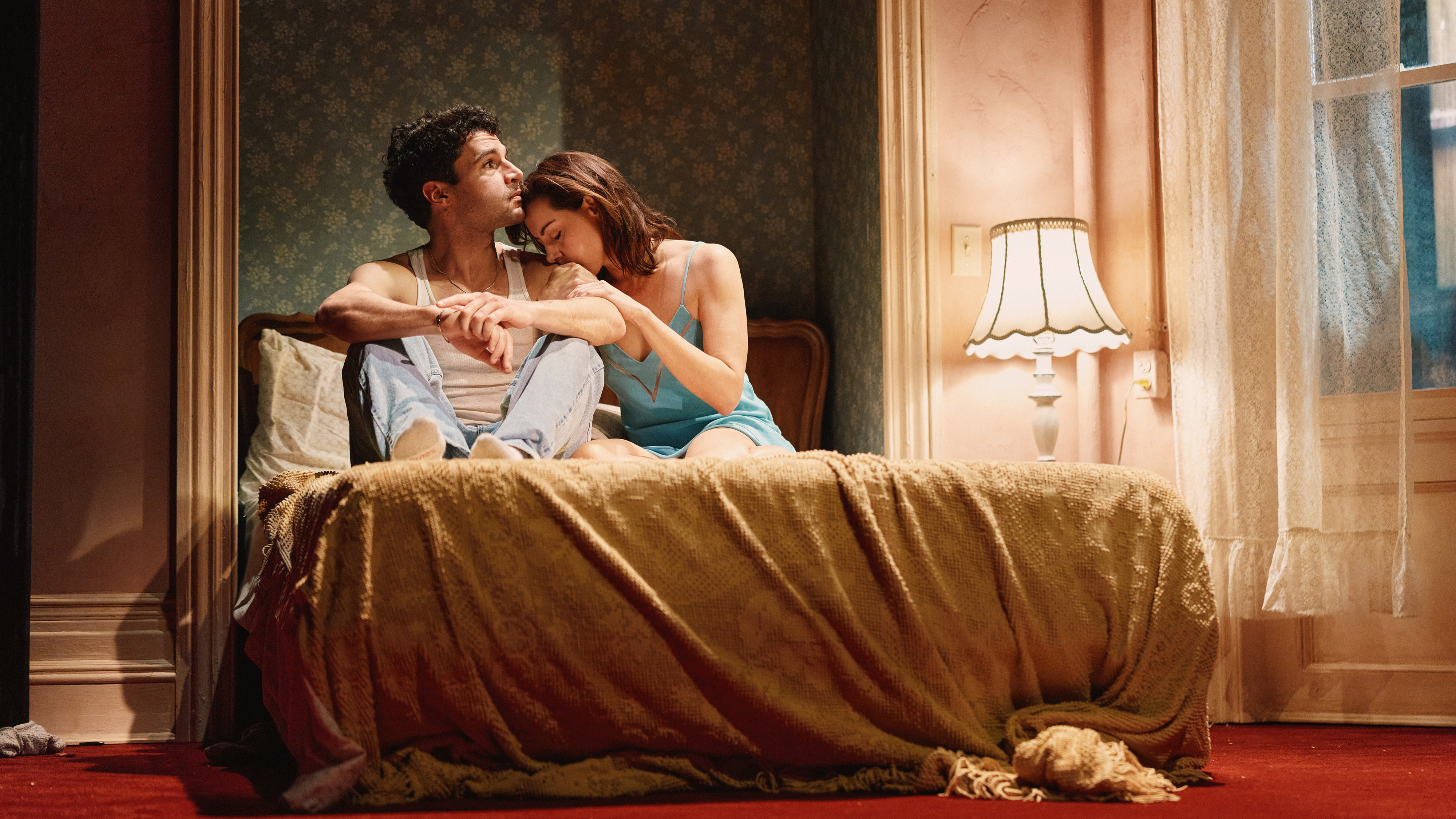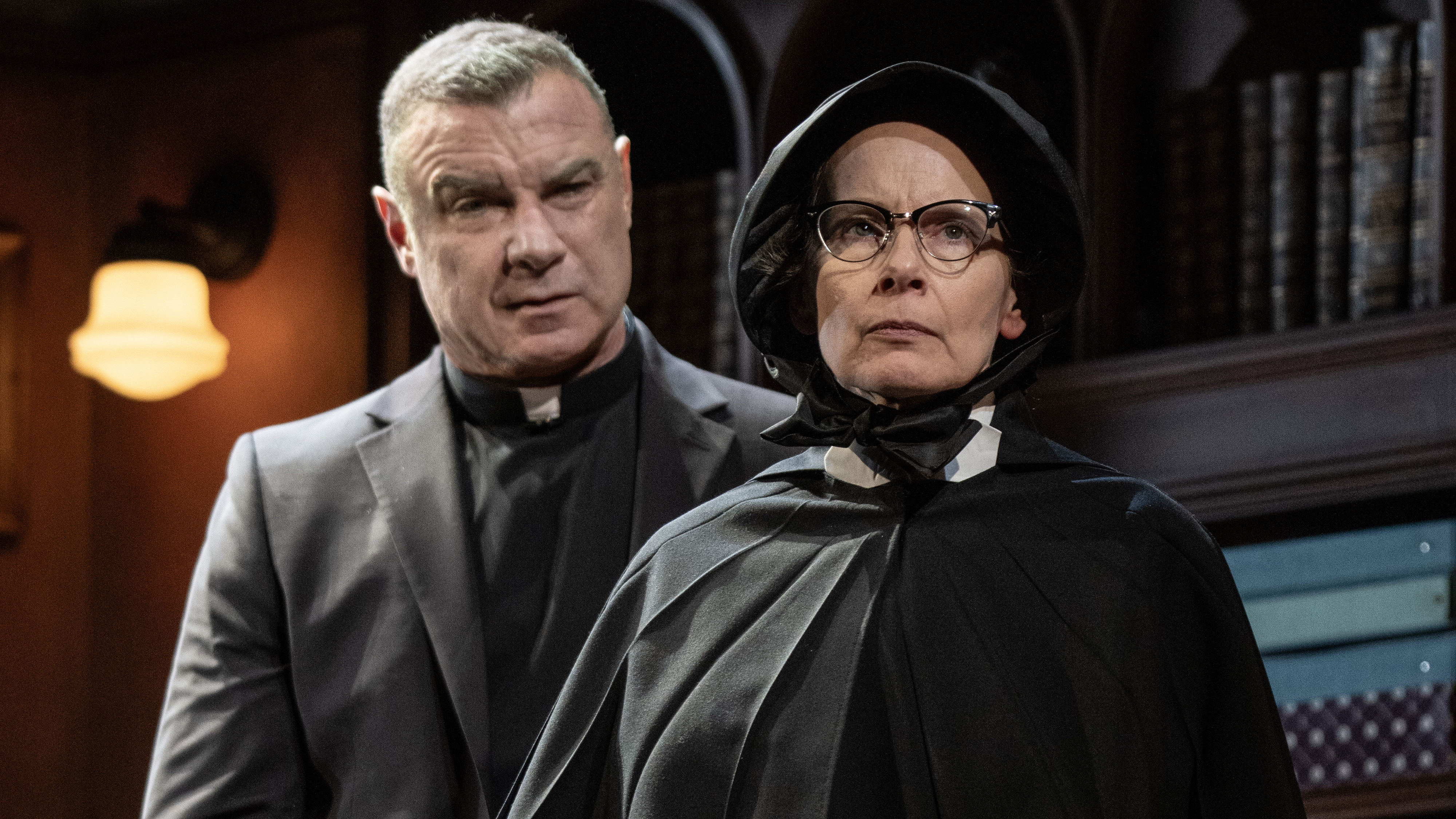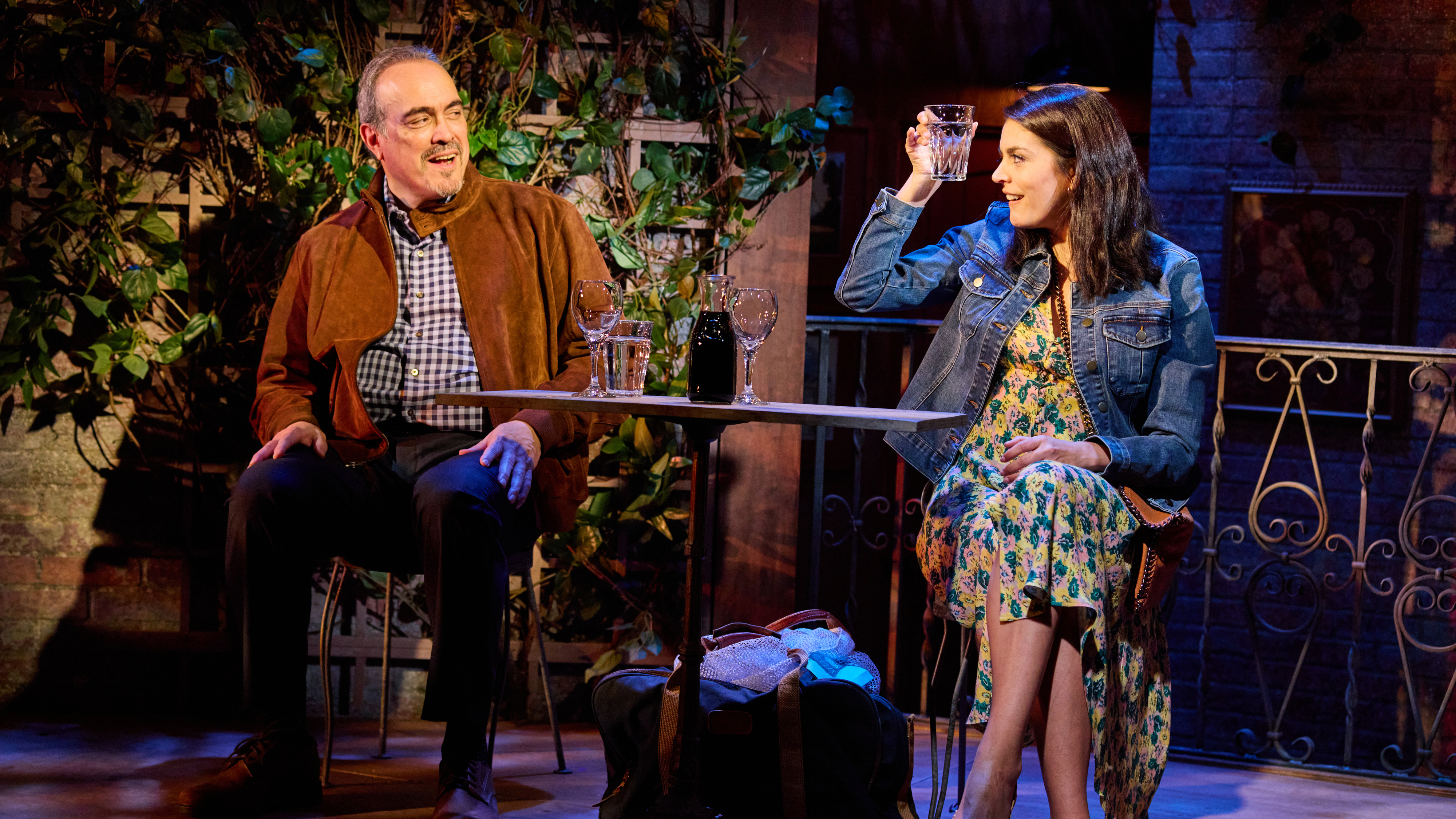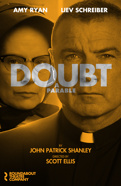Playwright John Patrick Shanley Mines a Season of Memories with Danny and the Deep Blue Sea, Doubt and Brooklyn Laundry

(Photo by Emilio Madrid for Broadway.com)
Oscar, Tony and Pulitzer Prize winner John Patrick Shanley is the quintessential writer—exhibiting all the arcane quirks you might attribute to an artist as prolific and wonderfully peculiar as he.
“I certainly write in long hand,” says Shanley, taking The Broadway Show on a tour of his office. He adds dryly, “I've also dictated, and hired a guy who cannot take dictation at all—and then I yell at him” (he claims he once outlined an entire five-hour miniseries this way). The workspace has a functional computer, but, “I have so much stuff on my desktop that it can take me 15 minutes at least to find anything.” A Latin dictionary and maybe a copy of Robinson Crusoe are nearby when he writes: “You want to have a certain amount of ground underneath you,” he explains. And there’s one hard-and-fast rule: “No music ever,” he says. “I wrote for one day with the Hallelujah chorus from Handel's Messiah, and when I read what I'd written, it was absolutely insane.”
It takes a mind as magnificently cluttered as Shanley’s to conjure stories as disparate as the dark romance of Danny and the Deep Blue Sea, the unsettling interrogation of the Catholic Church in Doubt and the quirky two-hander about love born over a misplaced bag of clothes in Brooklyn Laundry. And it’s not often audiences get to see these vast corners of a writer’s mind back-to-back. Danny and the Deep Blue Sea, which debuted in 1983, was revived off-Broadway at the Lucille Lortel Theatre this past fall, starring Aubrey Plaza and Christopher Abbott. Doubt, Shanley’s 20-year old Tony and Pulitzer-winning drama, is back on Broadway at the Todd Haimes Theatre through April 21, performed by Liev Schreiber, Amy Ryan, Zoe Kazan and Quincy Tyler Bernstine. And Brooklyn Laundry, which Shanley also directs, is now getting its world premiere off-Broadway at Manhattan Theatre Club, with Cecily Strong and David Zayas leading the cast.
Read Shanley’s reflections on all three projects—each one a time machine jettisoning him to a precise moment in a reliably unpredictable career. “I don't like all of my plays,” Shanley remarks. “But these three, I really like.”
Danny and the Deep Blue Sea

(Photo: Emilio Madrid)
"Aubrey Plaza and Chris Abbott wanted to do Danny and commercial producers wanted to do it with them. And so they went into a 300-seat house and did it down at the beautiful Lucille Lortel Theatre. And that came about through no action of mine. I wrote Danny in the Deep Blue Sea 40 years ago. I was at the first read-through for that and became very emotional as I was sort of brought back to where I was when I wrote that play. I made no changes to the text of any kind. I felt a little bit like Scrooge being shown the different scenes from his past and in my little nightcap going, ‘I'll be better next time, I promise.’ And the sweetness of the past and the pain and getting to see the pain from a remove where you're not in so much pain—it's consoling. But at each turn in the road, I have to say I liked the place."
Doubt

(Photo: Joan Marcus)
"I always knew I was going to write a play about the nuns because I knew them like the back of my hand. I had them for eight years and I could hear them talking. So I knew I was going to write the play, and Church scandals were happening. And then I saw that the Bush administration was beating the drum planning to invade Iraq saying there were weapons of mass destruction. I thought, this reminds me of an earlier time in my life—a time of great certainty. Everybody around me seemed to know exactly what the present was and what the future was going to be. And they were all wrong. The world as we knew it in my little neighborhood in the Bronx at this church school was about to be swept away and nobody knew it. And so I wrote Doubt feeling that. And now, guess what? Everything's been swept away that were the certainties that we had, and we're living on top of an earthquake.
"It's not just an emotional rollercoaster like Danny. It's a more measured, contemplative and provocative piece. I thought [the revival] was a good idea because when I did the play originally, the world around me—New York City and America in general—were in a much more complacent time. I was in the minority in feeling deeply uneasy. Now, the whole audience walks in deeply uneasy and they are comforted by the play. This time they're like, ‘I know what you're talking about, brother.’"
Brooklyn Laundry

(Photo: Jeremy Daniel)
"I'm really impressed in an ongoing way with the attitude of the native New Yorker, probably best exemplified by Bugs Bunny. If you look at those Bugs Bunny cartoons, his reaction to the insanity of others is kind of terrific. He'll always take a minute and sort of get a kick out of how foolish you are and maybe play a trick or two on you. New Yorkers are very sanguine. They deal with the changes that they're faced with and they're steadfast.
"Like when I took my laundry to this drop-off laundry I had to get to every week. I went in and they said, ‘We can't find your laundry. The bag that you left last week, it's missing.’ And I'm like, ‘What do you mean it's missing?’ And they're like, ‘Come next week. Somebody will turn it in.’ I came week after week—nobody ever returned it. And then me and the laundry people together sort of looked out the window of the place and thought, ‘What are they doing with that laundry?’ Somebody out there—they're wearing my clothes, they're sleeping on my sheets. And then it takes it to a level of provocation and imagination where you get a play out of it and it's totally worth the price of one bag of laundry."





